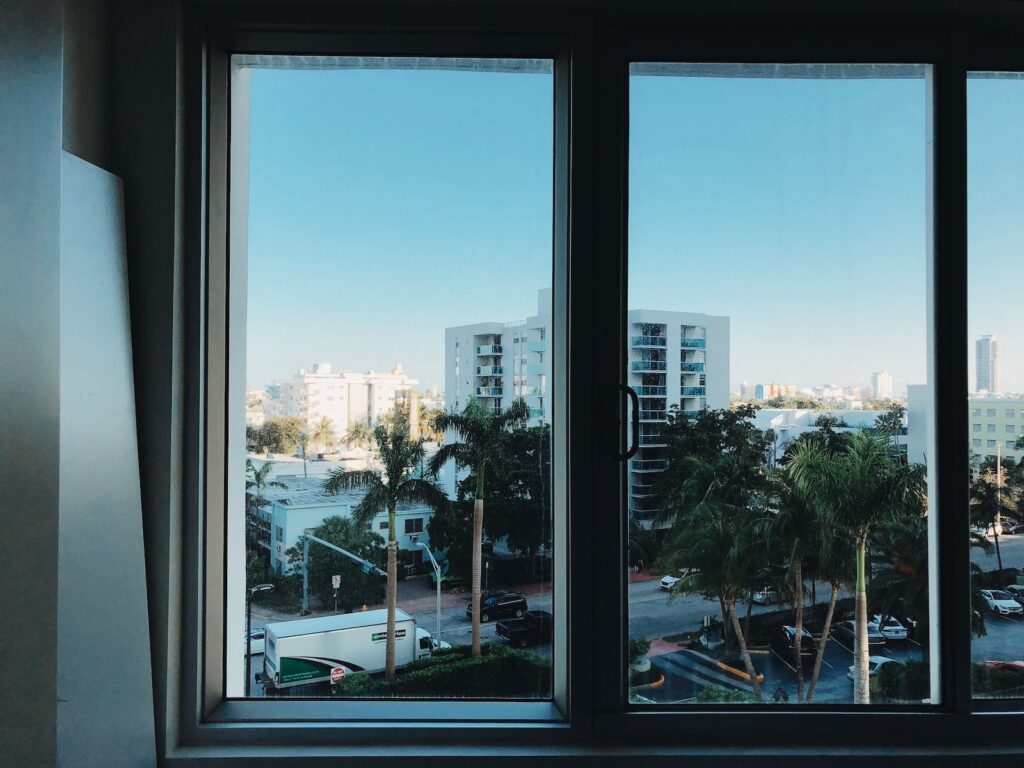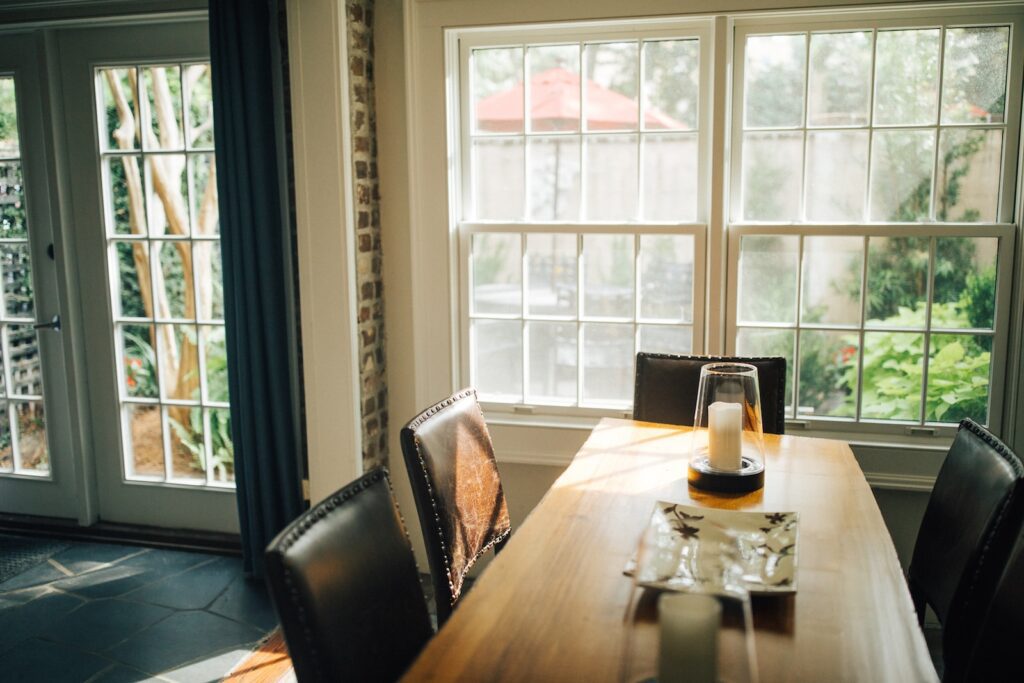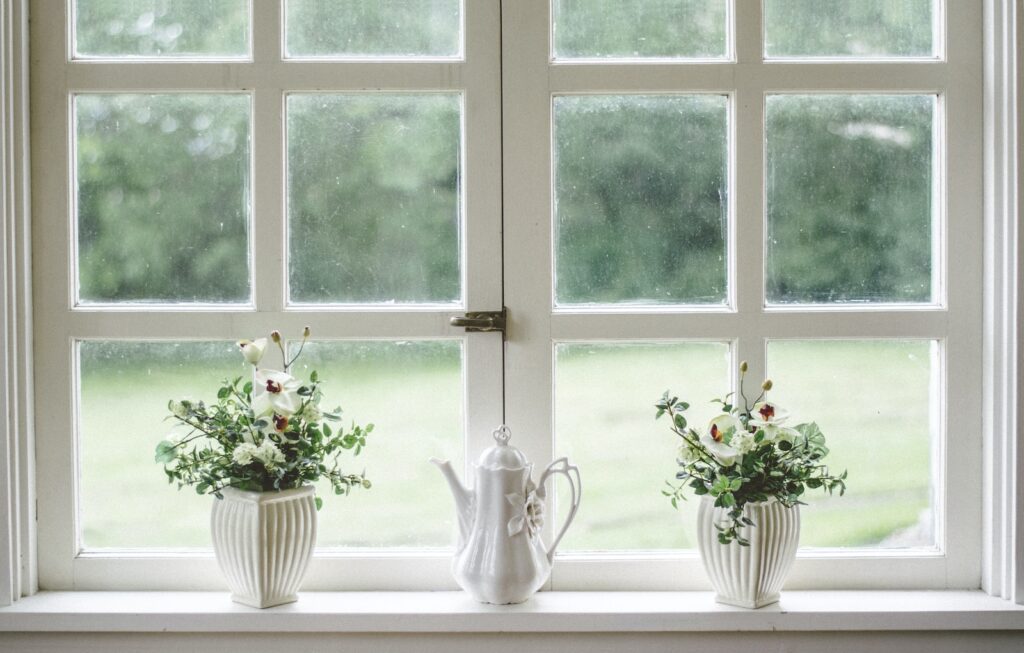Aluminum windows have been a popular choice for homeowners for decades due to their durability and affordability. However, as technology and materials have advanced, some homeowners are now questioning if they should replace their aging aluminum windows.
There are many factors to consider when deciding whether to replace your aluminum windows, including energy efficiency, maintenance, and curb appeal. In this article, we will explore the pros and cons of aluminum windows and help you make an informed decision on whether it’s time to upgrade to newer, more efficient window options.

Should I Replace Aluminum Windows?
If you’re considering replacing your old aluminum windows, you might be wondering if it’s really worth the investment. There are a few factors to consider when deciding whether or not to replace your windows, including energy efficiency, maintenance, and aesthetics. In this article, we’ll explore the pros and cons of replacing your aluminum windows, so you can make an informed decision.
Energy Efficiency
One of the main reasons homeowners choose to replace their aluminum windows is to improve energy efficiency. Older aluminum windows tend to be less energy-efficient than newer models, and may allow drafts and heat loss. By replacing your windows with more energy-efficient options, you can reduce your home’s energy consumption and save money on your utility bills.
In addition to reducing your energy usage, energy-efficient windows may also increase the value of your home. If you’re planning to sell your home in the future, energy-efficient windows can be a major selling point for potential buyers.
To determine the energy efficiency of a window, look for the U-factor and the Solar Heat Gain Coefficient (SHGC) ratings. The lower the U-factor and SHGC, the more energy-efficient the window is.
Maintenance
Another factor to consider when deciding whether or not to replace your aluminum windows is maintenance. Aluminum windows can be prone to corrosion and damage, especially if they’re exposed to saltwater or other harsh elements. They may also require regular painting or sealing to maintain their appearance and function.
If you’re tired of dealing with the maintenance requirements of your old aluminum windows, it might be time to replace them with newer, low-maintenance options. Vinyl or fiberglass windows, for example, require minimal maintenance and are more resistant to damage than aluminum windows.
Aesthetics
Finally, you should consider the aesthetics of your windows when deciding whether or not to replace them. If your aluminum windows are outdated or don’t match the style of your home, replacing them with newer options can improve your home’s curb appeal and overall aesthetic.
There are many options available when it comes to window styles, including double-hung, casement, and sliding windows. You can also choose from a variety of materials, colors, and finishes to match your home’s style and décor.
Benefits of Replacing Aluminum Windows
Replacing your aluminum windows can offer a number of benefits, including:
- Improved energy efficiency
- Reduced maintenance requirements
- Increased home value
- Improved curb appeal
- Better sound insulation
Aluminum Windows vs Other Types
When comparing aluminum windows to other types of windows, there are a few key differences to consider. Here are some pros and cons of aluminum windows compared to other popular window materials:
Aluminum vs Vinyl Windows
- Aluminum windows are more durable and resistant to weather damage than vinyl windows.
- However, vinyl windows are more energy-efficient and require less maintenance than aluminum windows.
Aluminum vs Fiberglass Windows
- Aluminum windows are less expensive than fiberglass windows.
- However, fiberglass windows are more energy-efficient and require less maintenance than aluminum windows.
Aluminum vs Wood Windows
- Aluminum windows are less expensive than wood windows.
- However, wood windows offer better insulation and can be more aesthetically pleasing than aluminum windows.
While aluminum windows can be durable and long-lasting, they may not be the most energy-efficient or aesthetically pleasing option for your home. By weighing the pros and cons of aluminum windows and exploring other options, you can make an informed decision about whether or not to replace your windows.
Frequently Asked Questions
Here are some common questions about replacing aluminum windows:
1. What are the signs that I need to replace my aluminum windows?
There are several signs that your aluminum windows need to be replaced. Some of the most common include:
- Drafts coming in around the windows
- Difficulty opening or closing the windows
- Condensation forming between the panes of glass
- Visible damage to the frames or glass
If you’re experiencing any of these issues, it’s a good idea to have your windows inspected by a professional to determine whether they need to be replaced.
2. What are the benefits of replacing aluminum windows?
There are several benefits to replacing aluminum windows, including:
- Increased energy efficiency, which can lower your energy bills
- Better insulation from noise and weather
- Increased home value and curb appeal
- Improved safety and security
Additionally, modern windows are typically easier to clean and maintain than older models.
3. How much does it cost to replace aluminum windows?
The cost of replacing aluminum windows can vary depending on several factors, including the size of your home, the number of windows, and the type of replacement windows you choose. On average, homeowners can expect to pay between $500 and $1,000 per window for installation.
It’s important to remember that while the initial cost may be high, replacement windows can save you money in the long run by reducing your energy costs and increasing your home’s value.
4. What types of replacement windows are available?
There are several types of replacement windows to choose from, including:
- Double-hung windows
- Casement windows
- Sliding windows
- Bay and bow windows
- Picture windows
Each type of window has its own advantages and disadvantages, so it’s important to consider your needs and preferences when choosing replacement windows.
5. Can I install replacement windows myself?
While it’s possible to install replacement windows yourself, it’s generally not recommended unless you have experience with this type of work. Improper installation can lead to drafts, leaks, and other problems that can decrease the effectiveness of your new windows.
It’s usually best to hire a professional to install replacement windows to ensure that they’re properly installed and sealed for maximum energy efficiency and performance.
After carefully considering the pros and cons of aluminum windows, the answer to whether or not you should replace them ultimately depends on your personal preferences and needs.
On one hand, aluminum windows offer durability, low maintenance, and energy efficiency. They are also affordable and widely available. However, they might not be the best option for areas with extreme weather conditions, as they conduct heat and cold easily.
On the other hand, replacing aluminum windows with more energy-efficient options such as vinyl or fiberglass windows could lead to significant energy savings and improved comfort. Additionally, these windows are available in various styles, colors, and finishes, allowing you to customize them to fit your home’s design.
Ultimately, the decision to replace aluminum windows should be based on your current situation and long-term goals. If you prioritize cost-effectiveness and low maintenance, aluminum windows might be a good fit for you. However, if you want to improve your home’s energy efficiency and upgrade its aesthetics, replacing them with other materials might be the way to go.


